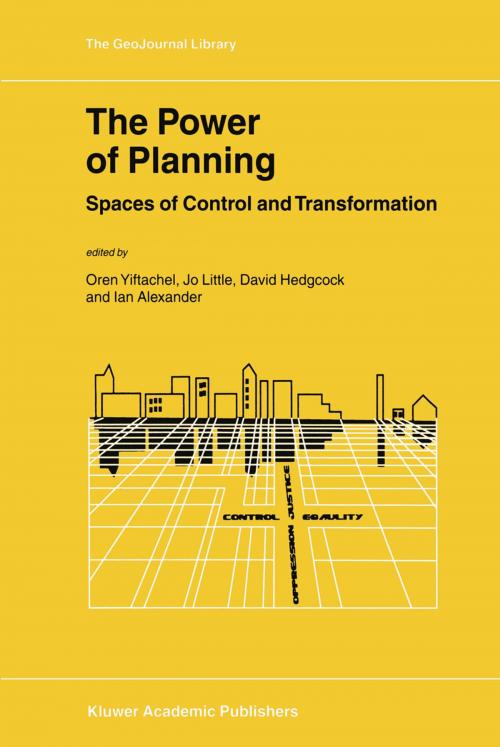The Power of Planning
Spaces of Control and Transformation
Nonfiction, Social & Cultural Studies, Political Science, Politics, City Planning & Urban Development, Science & Nature, Science, Earth Sciences, Geography, Nature| Author: | ISBN: | 9789401003599 | |
| Publisher: | Springer Netherlands | Publication: | December 6, 2012 |
| Imprint: | Springer | Language: | English |
| Author: | |
| ISBN: | 9789401003599 |
| Publisher: | Springer Netherlands |
| Publication: | December 6, 2012 |
| Imprint: | Springer |
| Language: | English |
The book addresses critically the question: "What is the societal impact of urban and regional planning?". It begins with a theoretical discussion and then analyses, through a series of case studies, the intentions, contents, struggles and consequences of urban and regional planning. It shows that plans and policies often defy the commonly perceived role of advancing equality, justice, development and amenity, by causing social problems, marginalisation and inequalities. The book looks at planning from a critical distance, without a priori belief in its necessity or usefulness. The 12 chapters, written by renowned international scholars, demonstrate the multiplicity of social and political struggles over the contested terrain of spatial policies. The book focuses on four key areas where the impact of planning is explored: the community power, gender relations, ethnic tensions, and social polarisation, while comparing three societies: Australia, Israel and England.
Audience: This volume is mainly intended for faculty and students of academia, but also for urban professionals and policy-makers. The book is relevant to fields such as urban and regional planning, geography, political science, urban studies, urban sociology, urban anthropology, ethnic and gender relations.
The book addresses critically the question: "What is the societal impact of urban and regional planning?". It begins with a theoretical discussion and then analyses, through a series of case studies, the intentions, contents, struggles and consequences of urban and regional planning. It shows that plans and policies often defy the commonly perceived role of advancing equality, justice, development and amenity, by causing social problems, marginalisation and inequalities. The book looks at planning from a critical distance, without a priori belief in its necessity or usefulness. The 12 chapters, written by renowned international scholars, demonstrate the multiplicity of social and political struggles over the contested terrain of spatial policies. The book focuses on four key areas where the impact of planning is explored: the community power, gender relations, ethnic tensions, and social polarisation, while comparing three societies: Australia, Israel and England.
Audience: This volume is mainly intended for faculty and students of academia, but also for urban professionals and policy-makers. The book is relevant to fields such as urban and regional planning, geography, political science, urban studies, urban sociology, urban anthropology, ethnic and gender relations.















